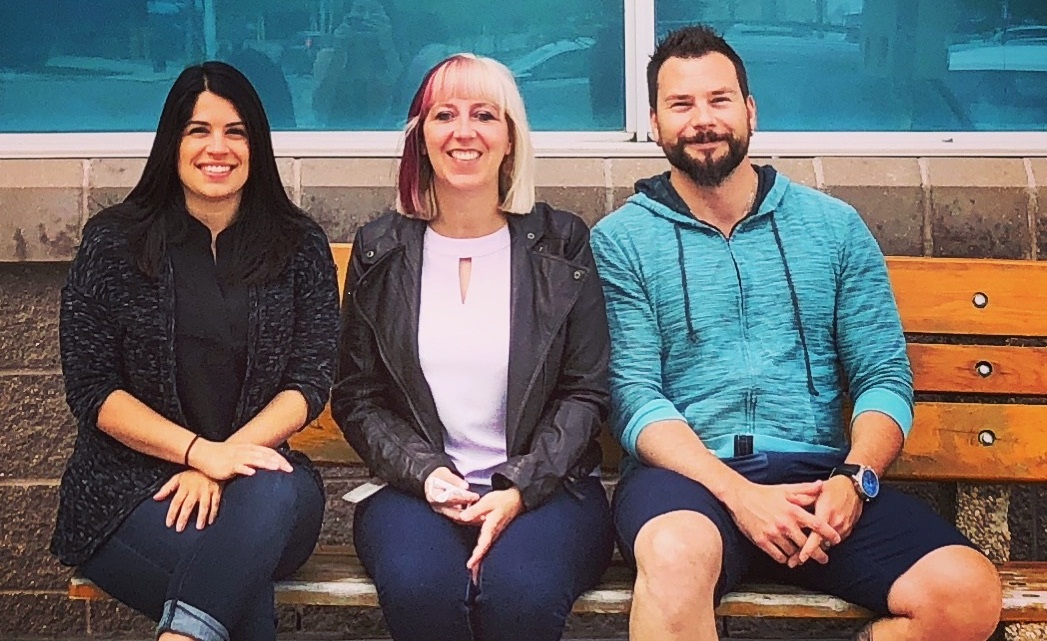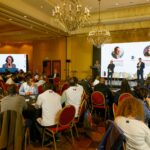The Education and Solidarity Network has spoken with Michelle Kirkbride who works as a community development coordinator and Mike Sadlowski who works in primary care as a kinesiologist and also in community development at NorWest Co-op community health center in Canada.
ESN : Can you tell us more about your organisation ?
MK : NorWest Co-op is the only health co-op in Mannitoba. We provide services to the Winnipeg population, ranging anywhere from traditional doctor and nurses services to nutrition, kinesiology and exercise. There are also councellors on site for variety of issues, some related to domestic violence, other to mental health and general counselling. We also have community development, where our team gets to work on a variety of projects such as Hans Kai and Youth based programs. All projects led by our community development team are related to the health of our community through empowering individuals. There are 150 employees and approximately 2000 members.
ESN : How would you define the culture of your organisation ?
MK : The culture of our organisation is very much based on the co-op principles. We believe everybody should have a voice, everybody should have the opportunity to share their skills. We don’t assume that we know more than community. It’s really about their needs and desires, or how they need to get to the place they are living the life that they want and how we can support them into getting there. We want to foster a culture of leadership among staff and among our community.
MS : Yes, our main goal is our actual community. Listening to them is what really makes the difference of our organisation. We hear what they want and we try to find the best way to facilitate those needs.
ESN : How would you define health and well-being ?
MK : I would say probably when people are living a life that gives them contentment whether it is their physical health, their mental health, or even their economic and spiritual health. We do our best to support people so they can reach their goals and we try to foster a holistic view of health and all the different factors that can impact it.
ESN : Could you explain to us what is a community based approached ?
MK : We try to work with community members who are interested in getting involved, let’s say in their health and well-being. It takes a long time and we really have to invest and involve with other partners, community members and the community itself. For example, we have what we call a resource center directly in our most vulnerable communities that creates of a mini version of Nor’west in the community. When community members attend there we can start building relationships with them, we get their opinion on what would be good for their community and how they can get involved in it. It’s the best example I can give…We really believe that community has a right to know about their health and well-being and all the things that can impact. But sometimes that can be a challenge.
MS : Also, when we run the programs and when we have something that the community really appreciates, we usually get people that kind of emerge as leaders. Those become our advocates and they speak more and more to community members and all of a sudden the community starts to be the owners of programs. Sometimes we do have to go against the grain. But in our minds we want to teach people skills to empower themselves, to be able to take control of their own health,to understand why they do certain things.
MK : It’s the idea that we view the community as a partner versus a client. And that sometimes we just have to be willing to take a risk. When we brought the program Hans Kai to Canada, I remember people saying « this isn’t going to work in Canada, groups won’t do self assessing and they are not gonna share the information ». They were completely wrong and completely fine to admit they were. Sometimes pushing against the grain, as long as it is not going to do any harm, is needed.
ESN : Can you tell us more about the Hans Kai program ?
MK : A few years back, we were introduced to the Hans Kai, a Japanese program. Because we were having constent requests to provide different health program, we thought Hans Kai could be a good way to link them and to look at all the different things that impact health rather than just stay on one track of activity or healthy eating. So we worked for one year with one of the team member in Japan so we could have all the information we needed, as well as with a variety of people ( from community workers to doctors), to figure the health issues and what kind of intervention and knowledge should we be giving to the community. Then, we tested this version with 2, 3 community groups and launched a research project in order to develop the program, which focuses on healthy eating and activities, stress management and also the importance of social support. We also have a Youth version of it which was actually designed with the community itself (youth and school). Currently right now, we have 274 people enrolled but over in Canada, we probably have 1000 people who have been through Hans Kai program since 2010.
ESN : Do you have other health programs ?
MK : We do. Hans is prob the biggest one for adults and youth but we also have a variety of programs.
Because a lot of our communities live below the poverty line and struggle with access to food, we have done a lot of programs on how to use low cost food and how to make them fresh. We do a variety of nutrional based program, all the way on how you eat with diabetes to people meeting, cooking and sharing food together. We do a lot of those programs for youth too so they can gain some kind of life skills, some anger management programs, self esteem programs, etc.
MS : Yes, and we also have many different physical activity program. As soon as there is a request, we try to fit into it. There is a focus on fall prevention, back helps, recovery, mobility issues, how to exercice with mobility restrictions, etc.
ESN : Thank you!





